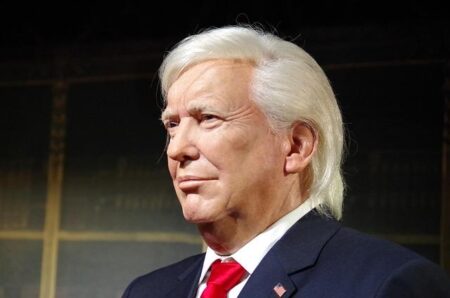Germany has called on the Israeli government to halt its settlement construction activities in the West Bank, Reuters reports. The German foreign ministry expressed concern that the ongoing expansion of settlements undermines prospects for peace between Israelis and Palestinians. This statement comes amid heightened tensions in the region, with international actors increasingly urging restraint and renewed dialogue.
Germany Urges Israeli Government to Halt West Bank Settlement Expansion
Germany has officially called on the Israeli government to immediately cease plans for new construction in West Bank settlements, a move that significantly escalates diplomatic tensions. Berlin emphasized that continued expansion undermines the prospects for peace between Israelis and Palestinians and runs counter to international law. The German foreign ministry highlighted concerns that the settlement expansion fuels hostility in the region and jeopardizes the viability of a two-state solution. This appeal follows recent announcements by Israeli officials outlining ambitious projects to increase housing units in contentious areas.
Key points raised by Germany include:
- Violation of international resolutions: Settlement growth contravenes United Nations Security Council resolutions urging cessation of such activities.
- Impact on peace negotiations: Expansion hardens positions and diminishes trust necessary for meaningful dialogue.
- Regional stability risk: Escalations risk inflaming tensions beyond the immediate conflict zone.
| Aspect | Germany’s Position | Israeli Government Stance |
|---|---|---|
| Settlement Expansion | Calls for immediate halt | Plans ongoing development |
| International Law | Condemns violations | Disputes applicability |
| Peace Prospects | Supports two-state solution | Focus on security and growth |
Diplomatic Implications of Germany’s Call on Israel Amid Rising Regional Tensions
Germany’s recent appeal to Israel to halt settlement activities in the West Bank carries significant diplomatic weight amid escalating tensions in the region. The federal government’s stance underscores Berlin’s commitment to upholding international law and the two-state solution framework. This move signals a growing impatience within the European Union regarding unilateral actions that complicate peace negotiations. Germany’s diplomatic call also reflects concerns over regional stability, as ongoing settlement construction risks further inflaming Palestinian-Israeli hostilities and undermining prospects for a negotiated settlement.
Key diplomatic ramifications include:
- Strained bilateral ties: The demand might cool Germany-Israel relations, testing Berlin’s balance between alliance and advocacy for Palestinian rights.
- Increased EU cohesion: Germany’s intervention could catalyze a unified European approach to Middle East peace policies.
- Impact on US-Israel dynamics: Germany’s bold stance may influence U.S. diplomatic strategies and pressure on Israel.
| Stakeholder | Position | Potential Impact |
|---|---|---|
| Germany | Calls for settlement freeze | Strengthens EU peace advocacy |
| Israel | Rejects external interference | Risks diplomatic friction |
| Palestinian Authority | Welcomes Germany’s stance | Boosts legitimacy in peace talks |
| United States | Monitors developments closely | Could reassess diplomatic pressure |
Recommendations for Renewed Peace Efforts and International Mediation in the West Bank
To foster meaningful progress in the West Bank, it is imperative that renewed peace initiatives prioritize inclusive dialogue involving all stakeholders. International mediation must be strengthened, emphasizing neutrality and adherence to international law. Key recommendations include:
- Immediate suspension of settlement activities to build trust between parties.
- Enhanced role for the United Nations and Quartet in peace facilitation.
- Establishment of joint Israeli-Palestinian committees to address security and civil concerns.
- Increased humanitarian aid and support for Palestinian infrastructure development.
Moreover, the implementation of a transparent monitoring mechanism is crucial to ensure compliance and build accountability. A proposed framework could be outlined as follows:
| Action | Responsible Entity | Timeline | ||||||||||||
|---|---|---|---|---|---|---|---|---|---|---|---|---|---|---|
| Settlement Freeze Verification | UN Observers | Immediate | ||||||||||||
| Facilitate Bilateral Talks | International Quartet | Within 60 days | ||||||||||||
| Infrastructure Development Review | NGOs & Local Authorities |
If you want, I can help you create the entire HTML snippet styled consistently or assist in summarizing or editing the content further. Let me know! To Wrap It UpGermany’s call for Israel to halt settlement construction in the West Bank underscores ongoing international concerns over actions that complicate prospects for peace in the region. As tensions persist, the global community continues to watch closely, urging restraint and renewed dialogue between both parties to seek a sustainable resolution. |




